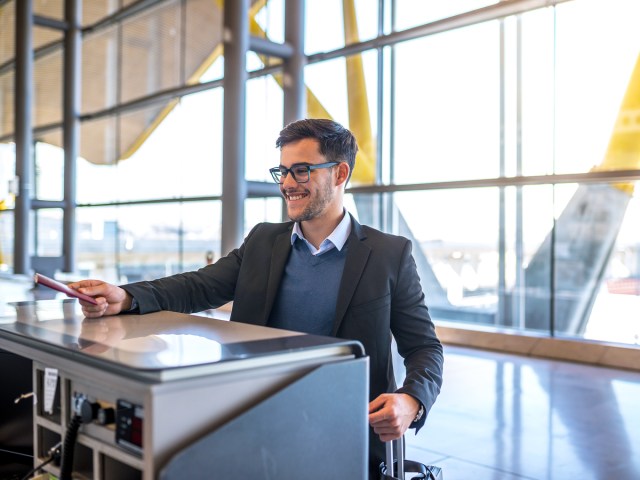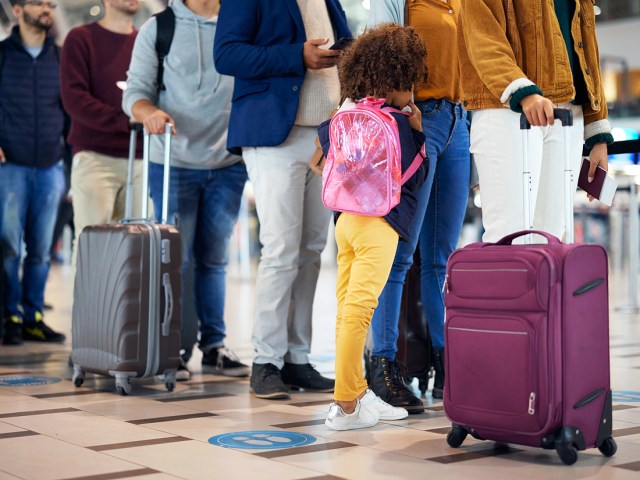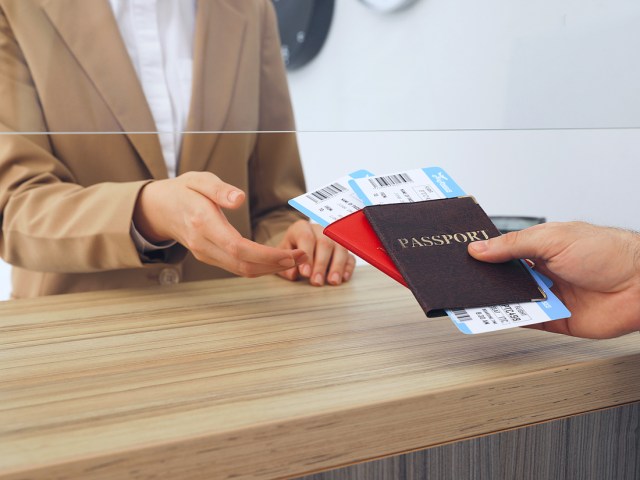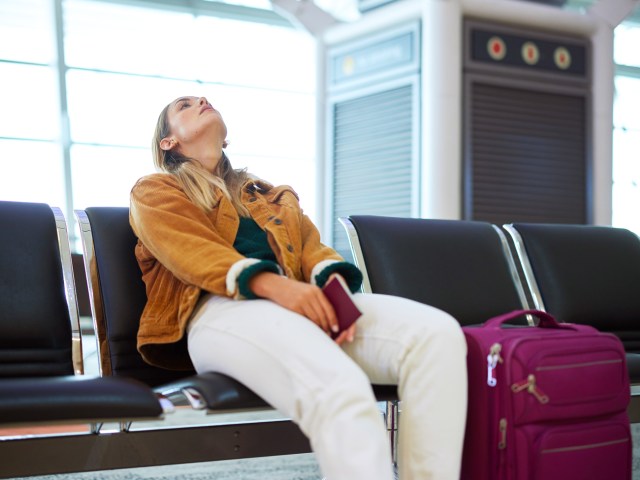Nothing derails an air travel day faster than being denied boarding. In 2023, around 25,000 passengers were denied boarding on U.S. flights, which equates to about 29 passengers per 1 million. Although it’s rare, there are several reasons why an airline might refuse to allow you on the plane — some of which might surprise you. From not having valid documentation to not following proper airport etiquette, here are five potential pitfalls to know that can save you from being stranded at the gate.
Note: All featured products and deals are selected independently and objectively by the author. Daily Passport may receive a share of sales via affiliate links in content.
You Don’t Have a REAL ID

Starting on May 7, 2025, federal law will require all domestic travelers in the U.S. to have a REAL ID to board flights. The requirement aims to enhance security by allowing only upgraded state-issued driver’s licenses or ID cards. Many states have been issuing REAL IDs for years — they’re clearly marked with a star, flag, or the word “enhanced” in the corner — so some domestic flyers might already use a REAL ID and not even know it.
If you haven’t updated your ID, now is the time to begin the switch (though there will be a grace period until 2027 for agencies and passengers to fully comply). The Department of Homeland Security details the process, which varies by state, on its website. Most travelers can receive an upgraded REAL ID by visiting a local Department of Motor Vehicles (DMV). However, a passport can still be used for air travel within the U.S.
You Cut in Line

Waiting in line to board a plane is one of the least enjoyable aspects of flying. But line cutters, beware — airlines are cracking down. Ignoring boarding instructions and rules can prompt airline staff to deny boarding, as gate agents reserve the right to refuse any passenger a seat. Avoid getting sent to the back of the line — or booted from the flight entirely — by listening to airline guidance.
In late 2024, American Airlines implemented new technology that automatically flags passengers who board ahead of their zone. As a representative from American Airlines explains, “The new technology is designed to ensure customers receive the benefits of priority boarding with ease and helps improve the boarding experience by providing greater visibility into boarding progress for our team.” If you require early boarding for special circumstances, such as medical reasons or traveling with small children, ask the gate agent before boarding begins.
Your Passport Is Damaged

Passports are essential for international travel and, if it’s your primary form of ID, domestic travel, too. Most travelers know that an expired passport won’t get you far, but a damaged one can also be a deal-breaker.
The U.S. State Department warns that any significant damage beyond everyday wear and tear — such as a torn page, laminate peeling, or unauthorized markings like stickers or stamps — can lead to delay or denial of boarding. However, what constitutes “everyday wear and tear” is a gray area. The decision is up to the individual checking your passport, whether they’re an immigration officer or airline employee.
Even minor wear and tear on the data page (the one with your picture and identification information) can cause problems. Make sure this page is intact before every flight. If you have a well-worn passport, consider updating it before an issue arises. A passport holder is also a practical and stylish way to protect this vital document — one of our favorite designs includes a slot for an Apple AirTag for easy tracking if your passport is misplaced.
You Were Late

Everyone runs late occasionally, but it’s one of the most common reasons travelers get denied boarding at airports. Even a few minutes makes a big difference for airlines running on tight schedules, so complying with the check-in and boarding cutoffs is essential. Before your travel day, know exactly when to get to the airport and when to be at your gate.
Most airlines recommend arriving two hours before domestic flights and three hours before international flights, but this isn’t the minimum requirement for check-in. American Airlines, for example, requires passengers to check in at least 45 minutes before scheduled domestic departures and 90 minutes before international flights. Delta Air Lines has a slightly different domestic policy for most U.S. airports, requiring a minimum check-in time of 30 minutes before departure. You might be denied if you try to check in later than these times — particularly if you’re planning to check your bag, as there are additional specific time requirements to be aware of.
Even if you’ve checked in online, you must clear security and make it to your gate on time. Many airlines require passengers to be at the gate 15 minutes before departure — and if you’re late, even by a few minutes, you’ll likely be turned away.
You Were Bumped

Have you ever been tempted by a flight credit offer to take a later flight? When a gate agent offers this to volunteers, they want to free up some space on a flight because there aren’t enough seats. If they don’t find volunteers, passengers will be involuntarily denied boarding or “bumped” from the flight.
To maximize profits, airlines often overbook flights to account for no-shows. The Department of Transportation requires airlines to fully compensate these unlucky passengers, but the practice is still incredibly inconvenient. To avoid being bumped, check in online as soon as possible, typically 24 hours before takeoff. You might also consider joining the airline’s free frequent flyer program or booking a higher fare class, which is less likely to be overbooked.
More from our network
Daily Passport is part of Inbox Studio, which publishes content that uplifts, informs, and inspires.
















